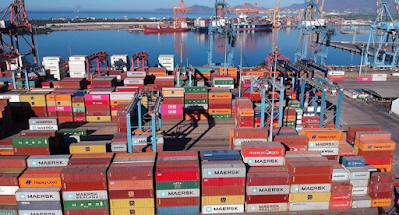Low-Value Imports Get $300 Duty-Free Relief, Says Nigeria Customs Board
Lagos, Nigeria – The Nigeria Customs Service Board (NCSB) has approved a new $300 duty-free threshold for low-value imports, a move aimed at boosting cross-border e-commerce and easing clearance delays for express shipments and passenger baggage. Announced on September 7, 2025, the policy aligns with global trade facilitation standards and is expected to stimulate Nigeria’s growing online retail sector, according to a statement by the NCS National Public Relations Officer, ACC Abdullahi Maiwada.
The $300 de minimis threshold exempts goods valued at or below this amount from customs duties and related taxes, provided they are not prohibited or restricted items. This applies to low-value imports, e-commerce consignments, and passenger merchandise in baggage, with a cap of four importations per year per individual, per Channels Television. The policy, effective immediately, is grounded in the Nigeria Customs Service Act 2023, specifically Sections 5(c and d) and 158 (5 and 6), as well as international frameworks like the World Trade Organization’s Trade Facilitation Agreement and the World Customs Organization’s Revised Kyoto Convention.
Eligible consignments will benefit from immediate release and clearance without post-release documentation, streamlining processes for small-scale importers and travelers. However, the NCS emphasized strict enforcement against invoice manipulation or duty evasion, with penalties for non-compliance, per Channels Television. The decision follows a comprehensive review of global practices, positioning Nigeria as a regional leader in trade facilitation, according to Maiwada.
The new threshold is poised to benefit Nigeria’s booming e-commerce market, valued at $10 billion in 2024, by reducing costs for consumers importing low-value goods like electronics, clothing, and personal items, per Nairametrics. It also aligns with recent duty waivers on essential food imports, such as rice and wheat, effective until December 31, 2024, to address food inflation, per Nairametrics. Social media reactions were largely positive, with @NaijaBizWatch tweeting, “$300 duty-free limit? Great move by NCS to boost e-commerce! 🛒 #NigeriaTrade,” though some, like @TradeSkeptic, cautioned, “Hope this doesn’t open the door to smuggling. Enforcement is key.
The policy contrasts with Nigeria’s existing duty structure, where imports are typically assessed using the Cost, Insurance, and Freight (CIF) method, with additional levies like a 1% Comprehensive Import Supervision Scheme (CISS) fee and 7.5% VAT, per customs.gov.ng. The $300 exemption, equivalent to roughly ₦480,000 at current exchange rates, significantly raises the previous ₦50,000 duty-free limit for personal effects, excluding luxury goods, per customs.gov.ng.
Alongside the policy, the NCSB addressed disciplinary issues, demoting two officers for misconduct seen in viral social media videos and reinstating two others after favorable reviews, per Channels Television. The officers face mandatory medical re-evaluations to determine their fitness for service, reflecting the board’s commitment to accountability.
The duty-free limit comes amid broader customs reforms, including a controversial 4% Free on Board (FOB) charge introduced in February 2025 and challenges with the Unified Customs Management System (UCMS), which has disrupted port operations, per Nairametrics and guardian.ng. These reforms aim to enhance transparency and efficiency but have faced criticism for increasing import costs, potentially offsetting the new threshold’s benefits for traders.
The $300 duty-free limit is expected to simplify clearance for small-scale importers and travelers, supporting Nigeria’s integration into global e-commerce markets. As the NCS navigates implementation challenges, including enforcement against fraud, the policy could reshape import dynamics, particularly for online shoppers and small businesses. With Nigeria’s trade policies under scrutiny, the move signals a step toward modernization, though its success hinges on robust oversight and economic stability.
